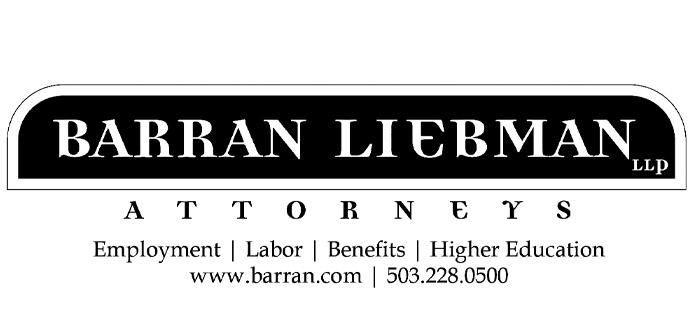What Employers Need to Know about Social Media in the Workplace
Social media has infiltrated nearly every aspect of our daily lives, and the workplace is no exception. The use of social media can strengthen workplace relationships, provide access to untapped resources, and promote knowledge-sharing amongst peers. However, where there are benefits, there are often risks. It is important for employers to understand the possible impact of the developing laws that regulate social media in the workplace. Social media policies and practices formed without knowledge of the law have the potential to result in violation of employee privacy rights, or even violation of federal law.
Here are a few things to keep in mind when navigating the complex realm of social media in the workplace.
Using Social Media in Hiring
While scrolling an applicant’s social media page may seem like an efficient method of evaluating applicants, doing so may expose employers to potential discriminatory practices. Under Title VII of the Civil Rights Act of 1964, employers may not discriminate against employees or applicants on the basis of a protected characteristic (i.e., race, color, religion, sex, gender identity, sexual orientation, pregnancy, national origin, age, disability, or genetic information).
When hiring, employers typically shield themselves from allegations of discrimination by creating application materials that leave out questions about an applicant’s protected status. Choosing to investigate an applicant’s social media page could still put employers at risk. Personal social media pages often display the protected characteristics of the individual who owns the account, such as their age, race, or gender identity. Considering any of that information, even unintentionally, could put employers at risk of engaging in discriminatory hiring practices. In limited circumstances, employers may even find themselves involved in antidiscrimination litigation.
Employers should also take care when using social media to advertise open positions. Specifically, publishing targeted advertisements carries the risk of engaging in discriminatory hiring practices. Where an employer chooses to advertise or use social media platforms to find potential applicants, special care should be taken to ensure such advertising is not directed at or limited to any specific protected characteristics.
Protecting Expectations of Privacy
There are currently no federal laws in place which prevent employers from requesting or requiring that an applicant or employee share personal social media login information or social media information that is not publicly available.
In 2013, Oregon became the tenth state to enact legislation protecting employee privacy in relation to social media accounts. ORS 659A.330 makes it an unlawful employment practice for an employer to require or request that an employee provide access or otherwise use their social media accounts for their employer. Employers also may not take or threaten to take any employment action, including discharge, discipline, or failure or refusal to hire an applicant, against an individual for their refusal to comply with the above social media requests. Where the social media account is provided by or accessed on behalf of the employer, the above restrictions may not apply.
Under ORS 659A.330, employers who provide devices to employees or use electronic devices or programs for monitoring employees will not be held liable for receiving access to personal social media accounts through those avenues. Regardless of whether an employer provides the device, they remain restricted from using learned information to access employee’s personal accounts.
Although employers may not request access to or control of employees’ personal and private social media accounts, expectations for behaving professionally both on and off duty may be established through employee handbooks or other policies, subject to certain restrictions.
Ensuring Compliance with the National Labor Relations Act
Section 7 of the National Labor Relations Act protects unionized and non-unionized employees’ right to engage in concerted activities for the purposes of mutual aid or protection. This protection extends beyond the physical workplace and could have implications for employers whose social media policies restrict discussion of workplace topics. Employees may be engaging in protected activity whenever they work together for the purposes of improving anything related to their working conditions.
An employer whose social media policy prohibits, or might be read as prohibiting, such discussions on social media might be inadvertently committing an unfair labor practice. In 2016, the National Labor Relations Board found a Chipotle restaurant to have committed an unfair labor practice in “maintaining a social media code of conduct with prohibitions against posting incomplete, confidential, or inaccurate information,” including false or misleading statements. The Board concluded that this broad social media policy could be understood by employees as restricting Section 7 activities. The Board reasoned that the policy could deter employees from discussing work-related matters or identifying their employer when engaging in protected activities, among other considerations. To avoid similar liability, employers should take caution and seek out expertise when crafting a social media policy.
Takeaways
Employers should carefully consider their use or restriction of social media amongst applicants or employees to ensure that they are maximizing the benefits it can bring to the workplace while minimizing any potential liability that may arise. To mitigate risk, employers should take a second look at their social media policies and practices to ensure compliance with the evolving legal standards.
Joshua Waugh is an attorney at Barran Liebman LLP, where he advises employers in a range of labor and employment matters. Contact him at 503-276-2138 or jwaugh@barran.com.
Lex Shvartsmann is a law clerk at Barran Liebman LLP, where she partners with attorneys in client trainings, legal research, and the drafting of employment policies and handbooks.



